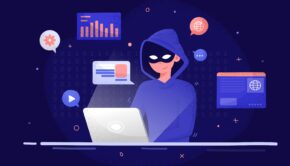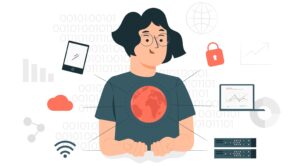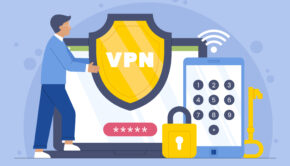What are the Dangers of Free VPN Services?
The cost of accessing the internet has plummeted over the years, thanks to hundreds of internet service providers (ISP). It would also interest you to note the strength of bandwidth is now more powerful than ever before, not to mention that internet users are now able to connect to wide-ranging networks. But, no freebies are without risks to users in this information age.
Whether you are using LAN, WAN, Wi-Fi or mobile data, connecting to the internet of things (IoT) via a virtual private network (VPN) is not always going to a sure bet on data privacy and secure browsing. Let’s explore further starting with the basics.
How safe is everyone online?
With high-speed internet connectivity, data privacy remains a big concern even in the unforeseen future. It is an everyday discourse. Anonymous browsing via virtual private networks may have come as a relief to many, but, there are pertinent issues that need to be addressed.
So are free VPNs safe? This question continues triggering endless debates around the world. And even with biggest data companies and most reputed ISP companies promising secure browsing, recent incidences of information leaks from social media giants like Facebook to data miners would spook anyone. Do not forget that hackers and scrupulous providers are always on the prowl looking for loopholes to snoop at your online activity.
Virtual Networks and private browsing
A VPN connection locates networks of servers around the world and lets users choose one over which they want to access the internet, including geo-restricted and government, censored websites anonymously. This way, your IP address remains hidden and so is encryption of browsing data. Information sent over virtual private networks cannot be decrypted or deciphered by prying eyes that may incept it.
Well, everyone would be tempted to think that the best free VPN for tor out there is safe, but, not until you become a victim of hacktivists and hackers. For companies and individuals that may have lost control of their websites through hacking, it could be largely blamed on cheap options from untrustworthy providers. Besides, when looking at the top VPN services in the market it is noticeable that all leading providers are actually the paid ones.
Dangers of using free VPS services
While not all free VPNs are insecure, most are, and it is because providers often focus their attention on paid versions. Thus, you may want to ask AU PapersOwl, a college paper writing service, to do a review of the best on App stores before settling on a good one. But before that, take a look at the reasons why free VPNs may not be safe after all:
- The danger of malware is real even when you are connected to virtual private networks. It can come in many ways such as targeted Ads, and before you know it, someone somewhere already has your credit card details, access to online merchant accounts and social media account. Thus, beware that even using highly rated and positively reviewed VPNs on Google Playstore because many have been found to compromise security and privacy of internet users.
- This might be shocking, but, numerous studies have unearthed that about 75% of free VPNs contain tracking codes. They collect your data for analytics, something which happens without user consent hence against EU data privacy guidelines.
- There is also a threat of hijacking a browser then redirecting your activity to partner sites to make money. A recent discovery is that Hotspot Shield VPN was redirecting Hypertext transfer protocol requests (https) to ecommerce websites.
- Nevertheless, it is never easy to rule out a possibility of IP leaks, especially when tunneling using free virtual networks.
- There is also a high risk of fraud, where a provider furnishes data mining companies with private information then fails to take responsibility for such negligence.
- A third party may have access to private information via free virtual networks, and it could be misconduct by a provider. It is like letting a hyena guard the sheep.
- There have been incidences of virtual private connectivity used to steal bandwidth of users and reselling it. A case in point is Hola VPN and sister company Luminati.
Choosing secure VPNs
Now, bearing in mind the above risks associated with free virtual private networks, students filling education forms online, people accessing home networks and companies connecting to the web via such networks must make the right decision from the onset. The following tips should help you choose a secure provider:
- Choose companies that have been in the market for many years, in which case, their services are more trustworthy than new entrants.
- Go for OpenVPN instead of Point-to-Point Tunneling Protocol (PPTP). The latter is an old implementation hence insecure as opposed to the former which employs advanced security layers.
- Read the license agreement before installing a virtual private network. It will help you avoid using those that log user traffic and the risk of having private information reach third parties.
- Get used to paid versions and avoid the risk of malware through targeted Ads in free Virtual private networks.
Final Thoughts
VPN service providers try to outdo one another and with free trial versions, the risk of losing control of one’s privacy is very real. Thus, always be on the lookout for red flags even as you stay connected. It is better to be safe than sorry in a world where data is increasingly becoming an invaluable treasure to miners.
















